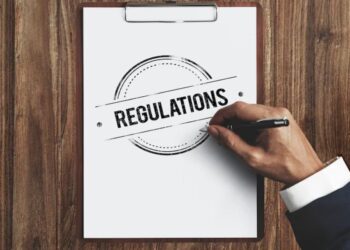QR codes once considered a novelty, have evolved into powerful tools that bridge the gap between the physical and digital worlds. Their integration across industries, including healthcare, marketing, and security, has highlighted their potential to revolutionize even legal processes. For legal professionals, QR codes offer streamlined documentation, improved client interactions, and enhanced data security. However, their adoption brings unique legal challenges.
A variety of online services provide free QR code generation and customization, making it easy for businesses to create and deploy QR markers. This article delves into how QR tags fit within the juridical sector, exploring their advantages, risks, and key legal considerations.
What is a QR Code and its Role in the Legal Sector
A QR code (Quick Response code) is a two-dimensional barcode capable of storing a significant amount of data, including URLs, text, or encoded instructions. With advancements in mobile technology, scanning these symbols has become second nature, making them an invaluable tool across industries, including law.
QR codes have proven valuable in the juridical sector by enhancing operational efficiency and security. Here are 3 key ways they are being used:
- Access to digital documents. Embedding QR labels on contracts, licenses, and agreements provides instant access to full versions of critical legal documents, making it easier for legal teams and clients to retrieve information quickly.
- Verification of document authenticity. QR images can contain encrypted information about a document’s origin and integrity, helping legal professionals verify that the content is accurate and tamper-free.
- Client engagement and interaction.QR symbols can link clients to secure juridical portals, allowing them to track case statuses, upload documents, and communicate with teams seamlessly.
Services like ME-QR make it simple to create and customize QR markers for law purposes. Their platform offers an intuitive QR code generator free online, allowing users to design dynamic and trackable QR codes. With ME-QR’s analytics features, legal teams can monitor how often and by whom the QR codes are accessed — an important aspect of document tracking and security.
Juridical Aspects of Using QR Codes
The increasing use of QR tags in official contexts raises questions about data protection, intellectual property, and digital document authentication. Below are some key considerations.
Data Protection and Privacy
QR codes often link to sensitive or confidential information, including personal data or agreements. As such, their use must comply with data privacy laws such as the GDPR in Europe or the CCPA in the United States:
- QR tags should be encrypted to prevent unauthorized access;
- sensitive data should be securely stored and managed according to relevant data protection guidelines;
- legal teams must ensure that users understand how their data will be processed when interacting with a QR label.
Failure to safeguard QR content can result in data breaches, fines, and reputational damage. To mitigate risks, organizations can use a free QR generator that supports dynamic and password-protected QR codes.
Legal Significance of QR Codes in Documentation
QR markers embedded in juridical documents hold significant legal value, as they can serve as evidence in court by linking to time-stamped versions of contracts or digital agreements. They help ensure proof of delivery by linking to digital contracts, guaranteeing that all parties involved have access to identical documents. Additionally, these markers play a crucial role in the verification of digital signatures by embedding data that confirms the authenticity of e-signatures.
By using a QR code generator online, professionals can embed links to immutable, blockchain-based document repositories, enhancing the reliability and credibility of the evidence presented in legal proceedings.
Intellectual Property and Copyright Issues
While QR tags may appear to be simple technical tools, their design and embedded content can fall under the scope of intellectual property rights. Custom-designed QR codes that contain proprietary material, such as copyrighted content or trade secrets, are eligible for copyright protection.
However, legal practitioners must also be aware of potential infringement risks. Unauthorized duplication or modification of QR labels can result in intellectual property disputes, which may impact the rights of the original creators.
By utilizing a QR code creator with advanced security features, firms can reduce the likelihood of misuse and unauthorized replication, ensuring the protection of valuable intellectual assets.
Legal Risks Associated with QR Codes
QR markers pose risks like data fraud, where counterfeit codes direct users to fake websites or documents, leading to unauthorized data access and financial loss. Phishing attacks are also common, tricking users into sharing sensitive details via compromised QR labels.
To minimize threats, organizations should adopt encrypted QR symbols from trusted platforms and conduct regular audits to detect vulnerabilities. Educating users to spot legitimate QR images and avoid suspicious links is equally crucial. By taking these steps, businesses can reduce risks while maximizing the potential of QR technology.
International Regulations on QR Codes
As QR images become globally relevant, legal practitioners must understand the international regulatory landscape:
- Europe – the GDPR imposes strict rules on the storage and processing of personal data accessed via QR markers;
- United States – although federal regulations are less comprehensive, state-level laws such as the CCPA address privacy concerns;
- Asia – countries like Japan and South Korea have implemented robust standards governing digital data security, including QR technologies.
Staying compliant with local and international standards ensures the legal use of QR codes across jurisdictions.
Practical Applications of QR Codes in Juridical Processes
A QR code generator can significantly boost productivity and security. By embedding QR symbols in case files, legal teams gain instant access to digital documents, ensuring quick retrieval and data integrity. Platforms like ME-QR, which act as a free QR code generator, provide dynamic solutions tailored for legal workflows, from contract management to secure client onboarding.
With these tools, legal firms benefit from real-time updates on contract terms and secure uploads of sensitive documents. Utilizing flexible and customizable QR solutions ensures smooth, compliant data sharing and tracking within the juridical sector.
Conclusion
QR codes are transforming the industry, offering improved access to digital resources, increased security, and streamlined workflows. However, their use demands adherence to privacy laws and the implementation of protective measures against fraud and misuse.
By leveraging reliable tools like the best free QR code generator and understanding legal obligations, professionals can maximize the benefits of QR technology while mitigating risks. As technology continues to evolve, staying informed about new challenges and opportunities will be essential for long-term success.










